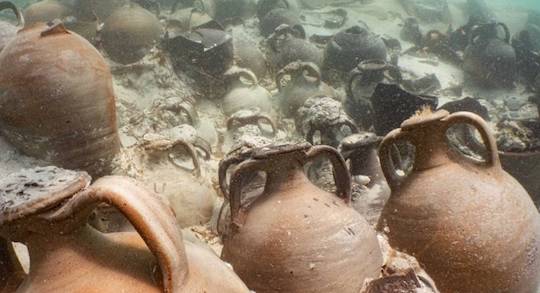Today, the multiple healthy properties of EVOO are well known to everybody. In order to acquire these properties, the oil must be Extra Virgin, and of an excellent quality, preserving all the minority compounds it possesses. To preserve these components, the storage and conservation of EVOO must be prioritized. This will determine that the quality and potency of the EVOO is not lost.
In recent years, numerous conservation methods have been researched and developed. They have used techniques such as the use of liquid nitrogen, sterilization, perfectly climatized warehouses and numerous containers that preserve these components intact until the time they are consumed.
But this is not simply a modern occurrence. Conservation methods like this were already done in Roman times. At this time, oil was transported in amphorae, which are oval-shaped clay vases with two handles and a narrow neck. The narrow neck facilitated its tight seal, so that the oil wouldn’t lose its properties and could be transported to any part of the planet by sea or land.
All of this can be corroborated in the latest find from a Roman shipwreck happening in Mediterranean waters off the coast of Mallorca. It was a sunken ship dating to the III century AD.
The ship is very well preserved and finds itself in near perfect conditions. It is believed that it collided with a big rock or cliff, and this is what caused it to sink to the bottom of the sea.
The real treasure that was hidden on the ship are the amphorae, which are in perfect condition and contain the key product, EVOO. Also, some amphorae were filled with wine and garum, an extremely popular Roman fermented fish sauce, also known as the “ketchup” of Ancient Rome. These products were extremely popular throughout the entire empire.
This is not only a great archaeological find that brings us closer to one of the greatest empires of the time. Thanks to this shipwreck, it has been discovered that the matchless properties that EVOO possesses can last for centuries, even millenia. The olive oil that was recovered from the amphorae was found in near perfect condition, and is able to be consumed after being perfectly preserved after 2000 years.

